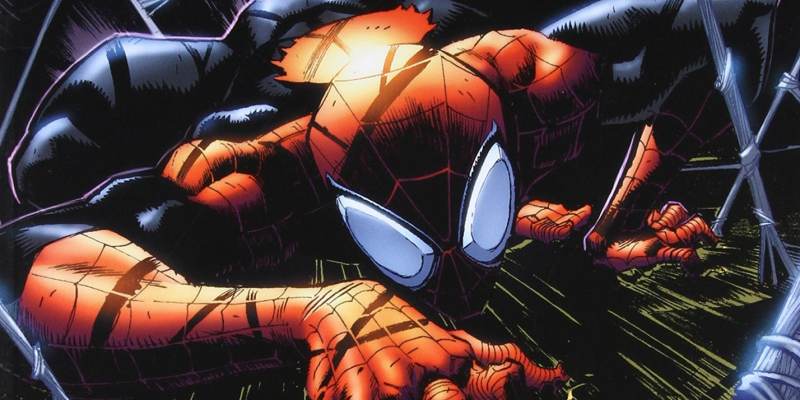They say a leopard can’t change his spots; in the Marvel Universe, you can sure as hell try, but the world will either drown you in a bucket or super-glue those spots right back onto your skin. And I’m not just talking about Kraven the Hunter who, thanks to Squirrel Girl, realized the error of his ways but ended up six feet under for no good reason at all.
Sure, the DC Universe has plenty of recurring villains, so much so that there’s a plot device, the Lazarus Pit, specifically designed to return dying characters to rude health. The problem with the Marvel Universe is that any villain who gets so much as a sniff of redemption is forced back into their role, doomed to multiple lifetimes of torment where death is nothing more than a temporary release.
Take Otto Octavius, better known as Doctor Octopus, who stole Spider-Man’s body and became the “Superior Spider-Man.” Overwriting an opponent’s mind isn’t a solid foundation for a career as a hero, but while he was in the driver’s seat, he learned to be a better man and surrendered Spider-Man’s body willingly.
Fast-forward a few years and he became the Superior Spider-Man once more, this time without subjecting Peter Parker to the horrors of Jordan Peele’s Get Out. Coupled with his previous experiences, he’d grown from a two-dimensional antagonist to a severely flawed but sympathetic individual, doing what he could to atone for his past crimes.

Even though he struggled with the notion of relying on others, he achieved a measure of acceptance. His path proved that people could change, that villains could be more than just cackling punchbags. At that point, Marvel hit the reset button with all its might, negating 12 issues of quality writing and returning Otto to factory settings.
As a keen follower of this arc, I’d never felt so short-changed by a comic. The only good thing about The Superior Spider-Man’s conclusion was that it didn’t end with the death of his love interest. When it comes to reversing character development and crushing a character’s spirit, Marvel will happily use other characters as grist for the misery mill. For example, Oksana Sytsevich did nothing more than marry the reformed Rhino, but Marvel merrily sacrificed her just to get her husband back into his armored suit.
You could argue that, having made so many others suffer, villains are undeserving of redemption. But in the Marvel Universe, an established superhero can spend six months punching kittens and be welcomed back with open arms. Think WandaVision’s reality-meddling shenanigans are ethically questionable? They’re nothing compared to what the Scarlet Witch got up to in the comics — and yet all was forgiven.
It’s not that Marvel deals exclusively in black and white though, that you’re either a hero or a villain with no shades of gray in-between. The Marvel Universe has its share of antiheroes, including Venom who, by virtue of being monstrous enough to be cool, became more than just Villain of the Week. He’s one of the few (former) Marvel villains who have shown any degree of introspection.

So why is Marvel’s refusal to let redemption stick a problem? Because while comics require a certain suspension of disbelief, it’s jarring to accept that half of Marvel’s villains have been trapped in the same sadistic cycle for over 50 years. Obsessive behavior is one thing, but lacking the awareness that your whole life is one fist-filled Groundhog Day is quite another. After your last five hundred sinister plans have failed, are you really counting on your next one to succeed?
One Marvel series, at least, had the sense to give the universe’s villains a chance to address their self-destructive behavior: The Unbeatable Squirrel Girl. Ryan North and Erica Henderson could have turned their Squirrel Girl run into an endless sequence of silly, shallow adventures, but the pair chose to dig deeper. Far from mocking the villains, as Spider-Man and his allies often do, Squirrel Girl actually sat down with her foes and just talked.
Some of them kept punching anyway, and it didn’t end well for them, mauled by a horde of squirrels or knocked flat out by The Girl Who Definitely Beat Thanos. But more than a few listened and were listened to; in the space of a few pages, the Unbeatable Squirrel Girl did more for Mole Man, Kraven, and Galactus than Marvel’s mainstream continuity ever had.
Unfortunately, while Marvel may dangle the carrot of redemption, any villain who takes a bite gets smacked by the stick of status quo. Marvel is afraid to take risks, and the few changes it does make end up being temporary. How do you come back from Captain America being a secret Nazi? You reveal that it wasn’t really him after all and everyone can get back on with their lives.

It’s not just Marvel who is fond of the status quo, either — a lot of fans are, too. Talking about Zack Snyder’s take on the DC Universe, Diane Nelson, former president of DC Entertainment, remarked that some people “have fixed opinions about who these DC characters are and are not.” The same is true of the Marvel Universe — when Captain America was revealed to be working for Hydra, a petition sprung up asking Marvel to reverse the change, receiving over 10,000 signatures. A similar if less popular petition sprang up demanding that Otto Octavius return to his role as Doctor Octopus.
I don’t blame writer Christos Gage for turning Otto Octavius back into Doctor Octopus; the decision was likely made way above his head. The advantage of creator-owned comics like Robert Kirkman’s Invincible is that the final say rests with the writer, but when you’re writing Marvel, DC, or their ilk, the characters aren’t yours; they’re just on loan. If Marvel chooses to undo all your good work just to make sure Character X remains a bad guy, there’s not an awful lot you can do about it.
Ultimately, it’s symptomatic of a larger problem; for all its crossovers and title-spanning events, the Marvel Universe is in real danger of stagnating. Giving villains the chance to grow may be a risk, but it’s a risk that’s resulted in some of the most creative, engaging, and sometimes heartwarming storylines Marvel has seen. So it’s high time Marvel realized redemption doesn’t have to be a dirty word.
